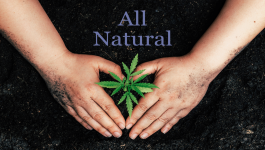The Zenobia flower, also known as the honeycup, is a stunning perennial that belongs to the Ericaceae family. The plant is native to the eastern parts of North America and is well-loved for its bright pink or white bell-shaped flowers and glossy green leaves.
Despite its beauty, many gardeners wonder if the Zenobia flower is toxic to other plants and pets. In this article, we will explore the nature of this plant and uncover the truth about its toxicity levels.
Is the Zenobia Flower Poisonous to Other Plants?
One of the concerns that gardeners have about the Zenobia flower is its potential to harm other plants. However, there is no evidence to suggest that this plant is harmful to other vegetation. In fact, the Zenobia flower is a beneficial plant to have in your garden as it attracts pollinators such as bees and butterflies.
The Zenobia plant prefers acidic soil, making it a great companion for acid-loving plants such as rhododendrons and azaleas. Its shallow root system also makes it a good choice for planting alongside other small perennials.
Is the Zenobia Flower Poisonous to Pets?
The safety of family pets is a top concern for many gardeners, and rightly so. The good news is that the Zenobia flower is not toxic to dogs, cats, or horses. However, it's still important to keep an eye on your pets when they're around the plant.
Like most plants, the Zenobia flower can cause mild gastrointestinal upset if ingested. Symptoms may include vomiting, diarrhea, and loss of appetite. If your pet shows any of these symptoms, it's best to contact your veterinarian immediately.
Final Thoughts
The Zenobia flower is a beautiful addition to any garden, and it's reassuring to know that it's not harmful to other plants or pets. With its attractive flowers and glossy leaves, the Zenobia plant is sure to add charm and color to your garden.
Remember to plant the Zenobia in acidic soil and keep it in a partially shaded area to encourage healthy growth. With a little care, this plant will thrive and provide years of beauty for you and your garden.



